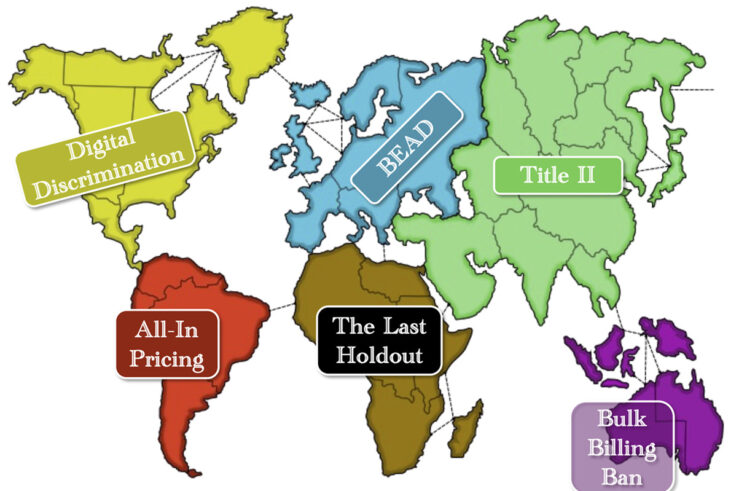Frank Pasquale has taken the time to respond to my earlier post on the use of antitrust to tax consumers on the grounds of fairness or other vague criteria. I take the basic point of Frank’s post to be that I have engaged in unfair burden shifting by demanding a showing of consumer harm prior to condemning the conduct as has been done in the Norwegian/ French investigations, though he goes on to make the some complaints about consumer rationality, a claim that I “refuse to inquire” as to whether the big four in the music industry are engaged in tacit collusion, and an accusation that I am just another “free marketeer” who glibly ignores how other countries handle these problems.
Frank seems to be ignoring the fact that I was responding to his post, not writing a treatise on DRM or a full economic analysis of DRM markets. Specifically, as I note in my post in response to endorsement of the Norwegian antitrust approach:
I’m not sure what about the Norwegian / European approach is worth celebrating here from an antitrust perspective.
These new claims about consumer rationality as well as my lack of curiousity about antitrust abroad and tacit collusion are certainly outside the scope of his post and so I’m not sure how my failure to address them in my response to his post can demonstrate much of anything. Further, a search of the TOTM archives will reveal that I have several posts about empirical evidence regarding consumer rationality as well as international antitrust issues. Overall, I thought Frank’s post was a “pretty disingenuous reading of my post” and said as much in a comment over at CoOp with a promise to respond later here at TOTM. Upon further reflection, I don’t think much more detail is required to illustrate this than what I supplied in my comment and so I will simply reproduce it here in full:
Frank, I think this is a pretty disingenuous reading of my post and I will respond over at TOTM later. But for now, please note the following: (1) my post clearly states that its purpose is to evaluate the Norwegian attack from an antitrust perspective; (2) antitrust in the United States has adopted a consumer welfare-based approach of analysis which requires a demonstration of likely or actual competitive harm; (3) your post framed the issue in antitrust terms and thus asks for the consumer harm analysis, not mine.
What you take as “burden shifting” (“If I can’t show concrete, immediate consumer harm arising out of iTunes incompatibility, I can’t criticize it”) is a statement about the shortcomings of your approach under the antitrust law.
The rest of your post strikes me as inapposite. I am happy to concede, contrary to the allegations in your post, that it is quite possible that Apple’s conduct harms consumers and thus should be condemned after an appropriate antitrust analysis. My prior is that this is unlikely; but that is a separate issue from claiming that I know the answer to be true and would like to eschew real analysis. If consumers are harmed, lets conduct an analysis appropriately and *THEN* condemn the conduct. That seems to be the right sequence, no?
As to the argument that consumer welfare is not the appropriate metric for antitrust analysis, I believe that ship has sailed. The point of the post, which appears in the title, is that substitution for non-consumer welfare elements appears to be nothing more than hand waving and imposing one’s own personal policy preference at the cost of consumers. I stand by that proposition.
P.S. The three tenors case did not find dominance, the case was about an agreement between firms not to compete on price for a 10 week period. This has very little to do w. dominance.




